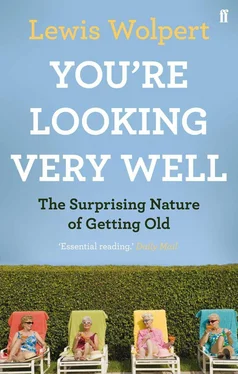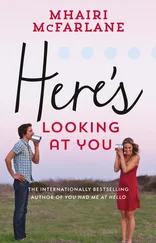Seven out of 10 people aged 65 and over believe politicians see older people as a low priority, and the former UK health secretary Andy Burnham has said the NHS must be re-engineered to cope with the demands of an ageing population. More care is needed, and much of this could be moved into the community. Something has to be done to prevent the elderly selling their homes and using up their savings. In a scheme worth considering, everyone who could afford it would pay into a state-retirement insurance, and then receive complete cover for their problems as they aged. Age UK is challenging the government and all political parties to transform the ageing process by ending pensioner poverty, banning all forms of age discrimination, and ensuring older people can access better-quality care and support.
Will society be able to afford the high cost of care and medical needs of the elderly? Even if all of Age UK’s priorities for improving life for the elderly are achieved, the underlying economic problems of an ageing society will remain here and in other countries. It is a major problem for the twenty-first century. There also has to be much more research into the ageing process to provide ways of dealing with age-related illnesses.
Writing this book has helped me to deal with my own ageing and my anticipation of death. I think it is a subject to which all of us should give much more attention. For the moment I remain looking well, but who knows for how long. In general I believe we should die before the ravages of old age really damage us. We should strongly support euthanasia for those who want it. I do not want to be one of the one in four in a care home and I would be happy to die peacefully at home when I am 85. But I may change my mind. Please keep remembering that research world-wide has shown that we are least happy in our mid-forties and happiest in our late-seventies, and even older.
* * *
Finally, here are the resolutions made by Jonathan Swift (1667–1745) for ‘When I Come to be Old’, written some 300 years ago:
Not to marry a young Woman.
Not to keep young Company unless they really desire it.
Not to be peevish or morose, or suspicious.
Not to scorn present Ways, or Wits, or Fashions, or Men, or War, etc.
Not to be fond of Children, or let them come near me hardly.
Not to tell the same Story over and over to the same People.
Not to be covetous.
Not to neglect decency, or cleanliness, for fear of falling into Nastiness.
Not to be over severe with young People, but give Allowances for their youthful follies, and Weaknesses.
Not to be influenced by, or give ear to knavish tattling Servants, or others.
Not to be too free of advice nor trouble any but those who desire it.
To desire some good Friends to inform me which of these Resolutions I break, or neglect, and wherein; and reform accordingly.
Not to talk much, nor of myself.
Not to boast of my former beauty, or strength, or favour with Ladies, etc.
Not to hearken to Flatteries, nor conceive I can be beloved by a young woman.
Not to be positive or opinionated.
Not to sett up for observing all these Rules, for fear I should observe none.
Banks, J., et al., eds. (2008), Living in the 21st Century: Older People in England . English Longitudinal Study of Ageing (Wave 3), Institute for Fiscal Studies.
de Beauvoir, S. (1970), The Coming of Age . Norton.
Carstensen, L. L., and Hartel, C.R., eds. (2006), When I’m 64 . National Academies Press.
Cabeza R., et.al., eds. (2005), Cognitive Neuroscience of Aging: Linking Cognitive and Cerebral Aging . OUP.
de Grey, A., and Rae, M. (2007), Ending Aging . St Martins Press.
Jacoby, R., et.al. (2008), The Oxford Textbook of Old Age Psychiatry . OUP.
Johnson, M. L., et al (2005), Handbook of Age and Ageing . Cambridge University Press.
Kirkwood, T. (1999), The Time of Our Lives: The Science of Human Aging . OUP.
Kurtz, I. (2009), About Time: Growing Old Disgracefully . John Murray.
Magnus, G. (2009), The Age of Aging: How Demographics are Changing the Global Economy and Our World . John Wiley.
Marmot, M. (2005), The Status Syndrome: How Social Standing Affects Our Health and Longevity . Owl.
Morley, J. E., ‘A Brief History of Geriatrics’. Journal of Gerontology 2004, 59A, 1132–52.
Neuberger, J. (2009), Not Dead Yet: A Manifesto for Old Age . Harper.
Partridge, L., Thornton, J. and Bates, G. (2011), The New Science of Ageing .
Philosophical Transactions of the Royal Society, 388, 6–7.
Sierra, F., et al. (2009), ‘Prospects for Lifespan Extension’. Annual Review of Medicine , 60: 457–69.
Skinner, B. F., and Vaughan, M. E. (1983), Enjoy Old Age . Norton.
Silverstone, B., and Hyman, H. (2008), You and Your Aging Parent . OUP.
Abkhasia, 1
Abrams, Dominic, 1
abuse, 1
Acquarone, Luciano, 1
advertising, 1, 2, 3, 4
Aesop, 1
Age Concern, 1, 2, 3, 4, 5, 6, 7, 8, 9, 10, 11
Age Discrimination in Employment Act (US), 1
Age UK, 1, 2, 3, 4, 5, 6, 7
ageism, 1, 2, 3, 4;
defined, 1;
in employment, 1, 2;
in healthcare, 1, 2;
in the media, 1, 2
age-related illnesses, 1, 2;
see also individual illnesses
Ahasverus (Wandering Jew), 1
alcohol, 1, 2, 3
Alexander the Great, 1
Allen, Woody, 1
Allingham, Henry, 1
Alzheimer, Aloes, 1
Alzheimer’s disease, 1, 2, 3, 4, 5, 6, 7, 8, 9;
causes, 1, 2;
diagnosis, 1;
symptoms, 1;
treatment, 1
Amis, Martin, 1
amyloid, 1
Anacreon, 1
Anderson, Ferguson, 1
APOE gene, 1
Aristotle, 1, 2
Aristophanes, 1
arthritis, 1
Aso, Taro, 1
Atchley, R. C., 1
atherosclerosis, 1
Athill, Diana, 1
athletes, 1
Aurelius, Marcus, 1
autophagy, 1
Avicenna, 1
Bach, J. S., 1
Bacon, Francis, 1, 2, 3
Bacon, Roger, 1
Bakewell, Joan, 1, 2, 3, 4
baldness, see hair loss
Ball, Lucille, 1
Beethoven, Ludwig van, 1
Bible, 1, 2, 3, 4
Blanchard, Martin, 1, 2
‘Blue Zones’, 1
Botox, 1, 2, 3, 4
brain, effects of ageing on, 1, 2
Brinkley, Christie, 1
Brinkley, John R., 1
Brosnan, Pierce, 1
Brown, Captian J., 1
Brown-Séquard, Charles-Edouard, 1
Burnham, Andy, 1
Burns, George, 1
Butler, Robert, 1
Byrne, Michael, 1
Callahan, Daniel, 1
Calment, Jeanne, 1
calorie restriction, 1, 2, 3
Campbell, Menzies, 1
cancer, 1, 2, 3, 4
Cann, Paul, 1
Capablanca, Jose Raul, 1
care for the elderly, 1, 2;
history, 1;
care homes, 1, 2;
home-based care, 1, 2, 3;
costs, 1, 2, 3
Carlucci, Antonio, 1
cataracts, 1
cellular damage, 1
Charcot, Jena-Martin, 1
Chateaubriand, François-René, 1
Chaucer, Geoffrey, 1
chess, 1
Cheyne, George, 1
China, 1, 2, 3, 4, 5, 6, 7
Chinen, Kama, 1
Christie, Agatha, 1, 2
Churchhill, Winston, 1, 2, 3
Cicero, 1, 2
Cleopatra, 1, 2
cold-related illnesses, 1
Comfort, Alex, 1
computers, and the elderly, 1
Confucius, 1
Contributary Pensions Act (1925), 1
Cornaro, Alvise, 1, 2
coronary heart disease, 1, 2
cosmetic surgery, 1, 2
cosmetics, 1, 2, 3
Creutzfeldt-Jakob disease, 1
crime, and the elderly, 1
Cryer, Barry, 1
da Vinci, Leonardo, 1
Darwin, Charles, 1, 2
Davis, Geena, 1
Читать дальше












